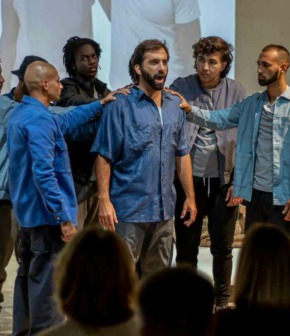Community dialogue

Many others played supportive and enabling roles. For each of them, participation brought new experiences, learning and connections. And that is as true of the arts organisations as of the social entities—co-creation is a two-way street.
The social impact of the projects, for individuals and groups, is complex and varied. For some, it brought new skills, knowledge and friendships. For others, the opportunity to express themselves, to create meaning and to be heard is what they will most retain. And others have gained a different sense of themselves and their place in the world as a result of achieving something difficult and being applauded for doing it.
What unites these changes is people’s opportunity to develop their capabilities to do and to be what they choose.
That means not only developing a person’s own abilities, but also ensuring that the economic, political, social and cultural environment in which they live enables them to use those abilities. This fundamental principle of freedom, defined by philosophers such as Amartya Sen and Martha Nussbaum, is easily taken for granted by those who have capability. Those who experience social exclusion know how precious these capabilities are because they are so often denied them.
Participating in the cultural life of the community is a human right because it is a key way of protecting human capabilities—both through the personal and community development it brings and through the social visibility that culture brings. The people who took part in La Gata Perduda, O Tempo (Somos Nós) and Out of the Ordinary did so for many reasons—because it was fun, interesting, challenging and different.